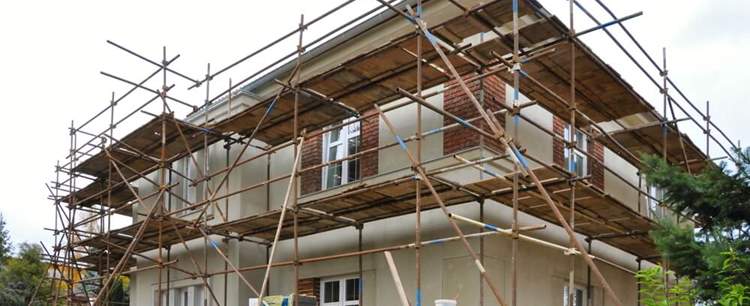Owning an unoccupied property necessitates careful consideration. While standard homeowner’s insurance offers a sense of security, its protections diminish when a dwelling remains vacant for an extended period.
Here, we outline common Unoccupied Home Insurance exclusions to highlight areas where cover may not extend.
Unoccupied Home Insurance Exclusions
Burglary through unforced entry
This type of insurance doesn’t cover burglary through unforced entry because it increases the risk of a break-in and undermines the core reason for having home insurance: securing your property.
Insurance companies expect a baseline level of security and a locked door or window is a clear deterrent to burglars.
An unlocked entry point makes it much easier for someone to enter, so the insurer considers the homeowner responsible for not taking reasonable precautions.
An unlocked entry point also makes it harder to prove a forced break-in, increasing the risk of fraudulent claims.
Insurance is all about shared risk. Everyone pays premiums to cover potential losses. An unlocked house significantly increases the likelihood of a break-in, which goes against the risk-sharing principle.
The insurer sees the homeowner as introducing unnecessary risk. Therefore, make sure all security measures at your property – including door and window locks – are fully operational at all times.
If you leave your front door wide open and someone walks in and takes your possessions, it can’t be considered a “break-in”.
Unoccupied House Insurance is designed to protect against the extra risks that come with an empty house. An unlocked entry point isn’t an extra risk, it’s a basic security failure.
Structural building works
There are a couple of key reasons why this kind of policy typically won’t cover major renovations and structural building works. The main one is that major works inherently increase the risk of damage to the property.
During construction, the house is in a state of flux. Walls might be open, exposing the interior to the elements or potential theft. There’s also a higher chance of accidents like dropped tools or mishandled materials causing damage.
Since empty property insurance cover focuses on the risks associated with an unoccupied house, the additional risks introduced by renovations take it outside the scope of the policy.
Building work requires specialised Home Renovation Insurance to address the unique risks involved, which might include cover for damage caused by the builders themselves and public liability in case someone gets hurt during construction.
Your contractor should also have their own builders’ insurance in place.
Damage due to poor maintenance
Your insurer also won’t cover damage caused by poor maintenance and neglect. This is because a lack of care and attention goes against the core premise of insurance – the shared risk of unforeseen events.
Insurance protects against unexpected events like fires, storms, or theft. Damage from poor maintenance, like burst pipes due to a disabled heating system, is foreseeable and preventable with proper care and attention.
As the homeowner, you have a duty to maintain your property. Unoccupied property insurance assumes this basic responsibility is being fulfilled.
If the house is empty, it’s essential to take appropriate steps like winterising the plumbing, draining the water system, ensuring the heating is left on at a minimum level, and inspecting the property regularly.
Unoccupied insurance is meant to be a safety net for unexpected events, not a replacement for responsible homeownership.
If the damage stems from a known issue that could have been prevented with proper maintenance, the insurer considers it your responsibility, not an unforeseen event covered by the policy.
Get covered with UKinsuranceNET
Leaving your house unoccupied – whether it’s a holiday home, a rental property between tenants, or during an extended trip abroad – can be a nerve-wracking experience.
Standard homeowner’s insurance is unlikely to provide protection if you leave your property unoccupied for an extended period (usually for more than 30-60 days).
At UKinsuranceNET, we understand the unique risks associated with empty properties. That’s why we offer Unoccupied House Insurance policies that give you a financial safety net in the event of insured perils.
We’ve listed commonly excluded perils in this article, but always read the policy wording and terms and conditions to familiarise yourself with what is and isn’t covered.
This can prevent any surprises if you need to make a claim.
Get a free instant quote or if you’d rather speak with an adviser, contact us on 01325 346328.
The sole purpose of this article is to provide guidance on the issues covered. This article is not intended to give legal advice, and, accordingly, it should not be relied upon. It should not be regarded as a comprehensive statement of the law and/or market practice in this area. We make no claims as to the completeness or accuracy of the information contained herein or in the links which were live at the date of publication.



